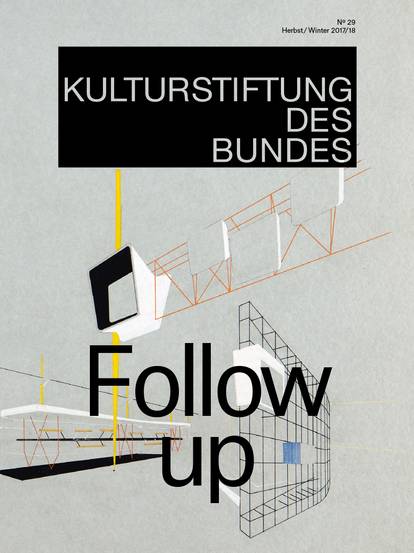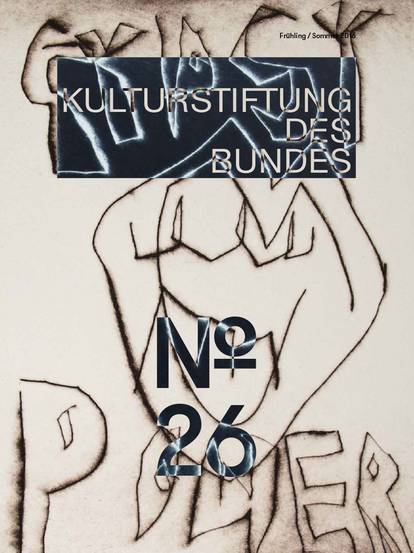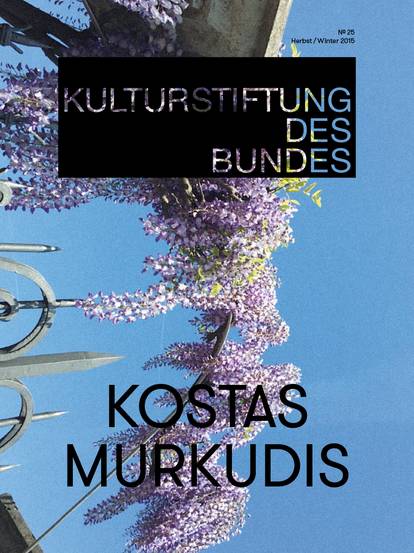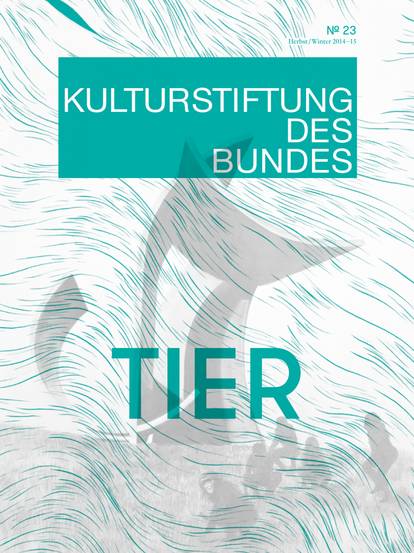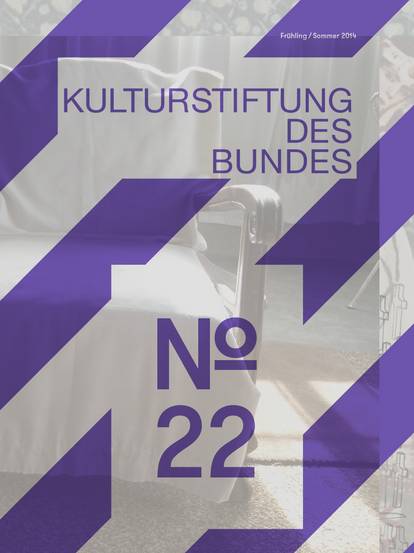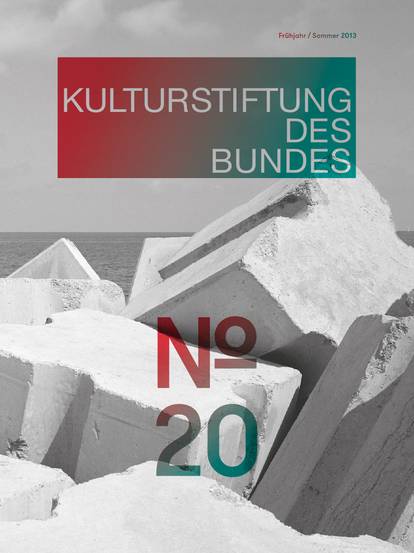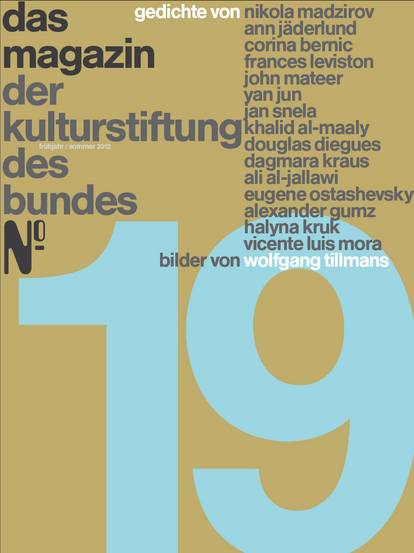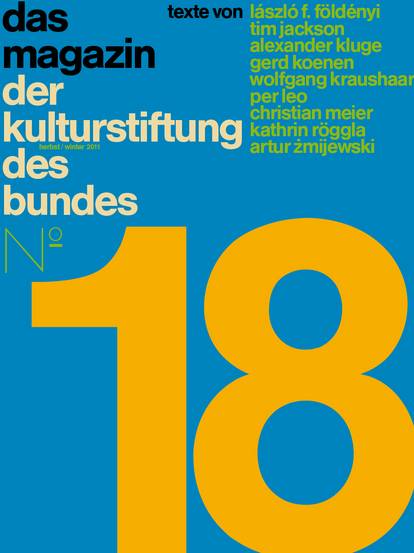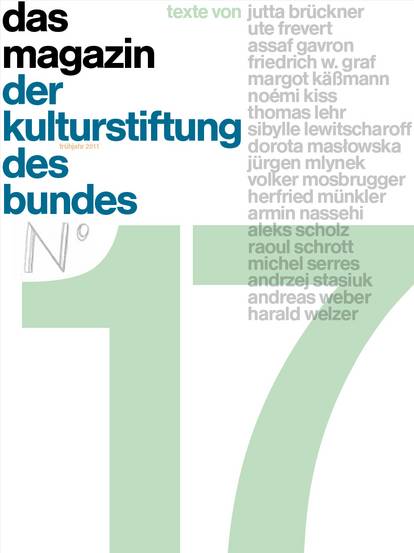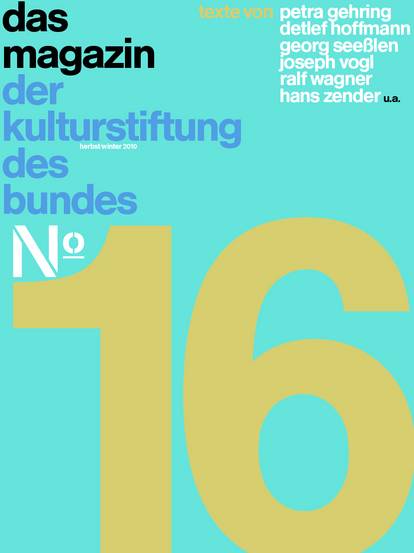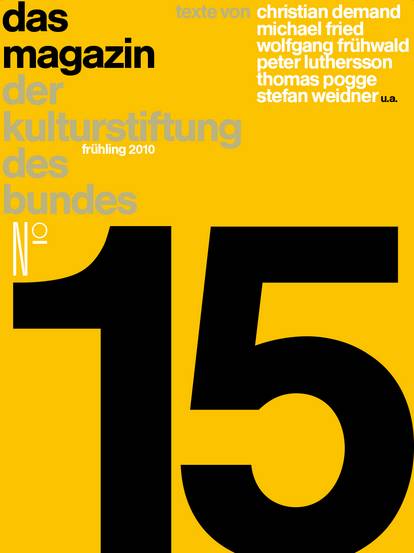Twelve million Roma live in Europe, making them the largest minority group on the continent. Though little is known of their early history, experts have determined that twelve hundred years ago, the Roma people left present-day Rajasthan in northwest India and travelled via the Balkans to Europe. It is likely that the Roma originated from the lower castes, like the Doma, whose members eke out their existence as dancers and musicians. As to why the Roma left their homeland, we can only speculate. According to one theory, the Roma may have wanted to escape the restrictive caste system in Rajasthan to pursue a new life in freedom.
Jakob Kneser (JK): Marc Sinan, what inspired you to do this project?
Marc Sinan: This is clearly all about belonging and not belonging, it’s about stigmatisation, about vitality, it’s about the beauty of culture which can arise under any circumstances, or which is possible under no circumstances.
JK: What is your particular interest in the Roma?
Marc Sinan: What I find interesting about the Roma is that they’re a community which the whole world uses as a projection surface for its prejudices. There is no place in the world, I believe, without prejudice against the Roma. At the same time, the Roma are at home everywhere and nowhere, and thus have achieved to a certain extent what we always wish for in our dreams, namely freedom from limitations. It’s a completely different way of looking at life and society, something we wish for with all our hearts, but something we are so frightened by that we have no choice but to despise it. I find this incredibly interesting!
“Rajasthan” is much more than a musical experiment. It basically boils down to the age-old antagonism between the “travelling folk” and the settled inhabitants. Their view of the “Roma travellers” has always been one of fascination mixed with fear, admiration mixed with revulsion. As border-crossers and transnationalists par excellence, the Roma have always aroused suspicion among the settled people. But most of all, it’s about the history of a stigma which the Roma have never been able to shake off even after a thousand years since their exodus.
JK: What traces of the Roma can we still find in Rajasthan today?
Marc Sinan: There are no Roma in Rajasthan anymore, only this legend of the Roma exodus from Rajasthan. The musicians we’re working with are musicians of different castes, like the Bhopas. This caste is just like the Roma in Europe, or like anywhere else in the world at the lower end of society. These are people who are so poor, they have no land and no cattle, they have no choice but to work as musicians just to scrape up enough money to live. That corresponds with the cliché of how we imagine a gypsy musician. For all those social occasions that require music, these Bhopa musicians, these traditional musicians, are around and live in traveller communities. They aren’t explicitly Roma, but they do hold the same social position as the Roma do today in Europe, in the same way the Roma probably were forced to live in Rajasthan twelve hundred years ago.
JK: The Roma left this caste system behind after migrating to Europe – or haven’t they?
Marc Sinan: That’s what I find so amazingly shocking – after having left India, how can this caste stigma perpetuate in society in situations where it’s no longer necessary? In a way, it’s like a prophecy that sticks with them, and even though they escaped this place in haste, they cannot escape the racism, the stigma of not belonging, this position in society.
One of the European participants in the “Rajasthan” experiment is the Czech singer and violinist Iva Bittová. She is the daughter of Koloman Bitto, a Roma musician of Slovakian-Hungarian origin. Bittová, who now lives near New York, has developed her own distinctive style that oscillates between jazz avant-garde and Moravian folk music. I had planned to interview her about her father’s Roma heritage following a concert in Ulrichsberg in upper Austria, but it fell through; Iva Bittová was too tired. Yet she was charming, and bummed a smoke off me before taking her leave. A few weeks later, we were able to conduct the interview via Skype. Iva Bittová had returned from her European tour and was now sitting in her yard at home in New York state.
JK: How important is your father’s Roma heritage to you?
Iva Bittová: I never say that we’re a Roma family, at least none of us spoke of it at home. It was my sister who brought it all up after my father passed away. There’s no one we could ask anymore since my father’s no longer alive, and she started feeling like a Roma two years after my father’s death. My mother, who is still alive, always says that he used to speak Hungarian in school and with his family and friends. But there’s simply no reliable information about my father’s relationship with the Roma. It’s bewildering and always leads to an argument between my mother and my older sister Ida. And I’m in the middle and accept both sides. My father would have been the only person to answer the question. But unfortunately he’s been dead a long time.
JK: In interviews, your sister Ida has claimed that your father had denied his Roma identity all his life – out of shame, fear of discrimination and exclusion. Can you understand that from your point of view today?
Iva Bittová: I don’t think my father was trying to hide anything. Generally he didn’t talk very much, and what he did say, he said through music. He was a wonderful musician, very emotional. He played Romanian, Bulgarian, Hungarian folk music, but I honestly cannot recall any Roma songs. But there was always a lot of emotion there, lots of tears, lots of laughter. It was marvellous. I just can’t imagine that such an expressive, emotional person could have hid something like that all his life.
JK: What role has Roma music played in your own music?
Iva Bittová: What I do is not actually based on Roma music. I only know a few Roma songs from a time when I was seventeen, not earlier. But perhaps there are some similarities. What I admire about gypsy musicians is their temperament, their incredible talent. Everything happens very spontaneously in their music, just as it does in mine. I’m very wild in my music, in my expression, I don’t stay within certain limits, I’m open, lots of things happen instinctively, spontaneously. So there are parallels with how Roma make music.
JK: Would you say that the parallels to Roma music in your music are not so much based on specific songs, melodies or rhythms, but rather on a certain attitude?
Iva Bittová: You could describe it that way. In my music, it’s essential to be “naked” so to speak as a human being so that I can express what I have to express. There’s nothing there to hide behind, no mask, I am totally exposed. And it’s similar for Roma people, how they sing and perform, it comes straight and unfiltered from their heart and soul. And it also leaves one vulnerable in the sense that people can quickly see who you really are. This music doesn’t try to achieve a certain effect, it’s simply an immediate reaction to what’s happening to me in my life.
JK: What made you decide to participate in the “Rajasthan” project?
Iva Bittová: Ever since I began my career, I’ve felt that India was the place I had to go. India is basically the most important source of inspiration for us musicians, just think of the Beatles. I’ve always hoped that someday I’d have the opportunity, but somehow it never worked out. And so when I received the invitation from Marc, I thought it was the best thing that could ever happen because we’ll have the time to really work together with the musicians. What’s more, we won’t be in a big metropolis, but in small towns in the country. You can concentrate so much better on the music that way and don’t get distracted by the noise and sounds.
JK: Is the “Rajasthan” project something like a search for your heritage?
Iva Bittová: Perhaps, once I’m there, I’ll learn more about my roots. And maybe it will help me understand the experiences of my childhood. When I was a kid, I had darker skin than the others, even than my siblings who were blond. And sometimes people would call me “gypsy girl” or kids wouldn’t want to sit next to me in school. Being in Rajasthan might help me understand these kinds of stories better.
Iva Bittová doesn’t want to be labelled a “Roma musician”; she considers her music “global”. And isn’t it true that an unnecessary stigmatisation is attached to the label “Roma musician”, an outdated definition of art based on ethnic heritage? Doesn’t it simply perpetuate stereotypical thinking which has long become obsolete? But then again, why would Iva Bittová participate in a project which explicitly aims to investigate the origin of Roma music? For Marc Sinan, this detached, almost defensive attitude toward one’s heritage is symptomatic – and to a certain extent, also an integral part of the project.
JK: Can you understand Iva Bittová’s detached attitude with regard to her father’s – possible – Roma heritage?
Marc Sinan: My grandmother in Turkey is an Armenian, and I’m the only grandchild she officially recognises. With the others, she feels something between shame and rejection. I see a similar situation in Iva’s case. It’s like a psychologically collective predisposition or an unresolved trauma. And I also find very interesting how Iva reacts to her sister who has fully embraced the Roma heritage and a mother who responds to it with a big question mark, call it rejection, shame or insecurity. Iva herself is torn in this sense. And yet when asked if she’d like to participate as a soloist in a Rajasthan Roma project, she said unequivocally – yes, because I’ve always wanted to visit that place.
JK: Could this dismissive attitude be a productive contradiction for the “Rajasthan” project?
Marc Sinan: What I definitely don’t want is a clichéd gypsy project, and that’s why I actually find it interesting that Iva Bittová keeps a certain distance to her Roma background. Because that means we are basically not at risk of conducting a clichéd project, which is very important. I’m interested in Iva as a musician and performer, and I think we’ll just have to see what effect the project has on her while we’re there.
It is inevitable that “Rajasthan” will also have to address prejudices and clichés, particularly with respect to the supposedly innate musicality of the Roma. These are presumptions of unharnessed temperament, eruptive passion which the over-civilised, self-controlled members of settled society often regard with a combination of envy and disdain.
JK: Many Roma musicians identify themselves with these stereotypes of passion and musical virtuosity. How do you plan to avoid such “cliché traps”?
Marc Sinan: When you see with what simplicity and roughness and hardship people in Rajasthan survive in both nature and society, and yet develop music of such depth and joy, then you ask yourself whether music is not first and foremost synonymous with vitality and the will to live. But the moment I say that, I might be painting the Roma musician as the virile, happy gypsy. It’s a basic question I keep asking myself: How can I approach this narrative without succumbing to my own biases? And I think we have to do it by observing more than judging.
JK: As a “gadjo” – a non-Rom – were you concerned that you would be “hegemonialising” the Roma with this project, as has so often occurred in the past? In what way do you feel justified in using Roma traditions for your project?
Marc Sinan: Americans use the term “appropriation” when referring to a non-member of an ethnic group who feels qualified to speak for the ethnic group. Naturally I don’t want to do that, and it won’t happen. In this case, I take a different approach. I am not inventing fiction, I am rather a documentarist. You would never ask a documentary filmmaker whether he was a Rom or non-Rom while he accompanied Roma on their way to Rajasthan to find a connection to their Roma heritage. And that is exactly my role; I’m like a documentarist who uses the tools of documentary music theatre to put together a narrative in which the Roma are the protagonists. That is, I believe, the only possible and correct way to approach this story.

![[Translate to English:] Magazine 38](/fileadmin/_processed_/f/1/csm_Magazin38_Cover-Vorschau_921x1230_689f428dc3.jpg)
![[Translate to English:] Magazine 37](/fileadmin/_processed_/b/c/csm_Mag37_Cover-Vorschau_921x1230_b5129fdb2a.jpg)
![[Translate to English:] Magazine 36](/fileadmin/_processed_/2/a/csm_Cover_Magazin36__issuu_2f3cef97bb.jpg)
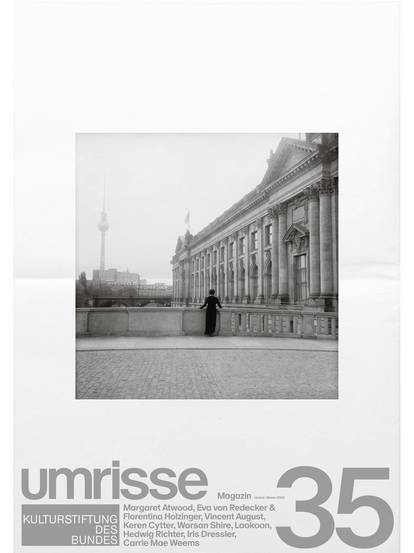
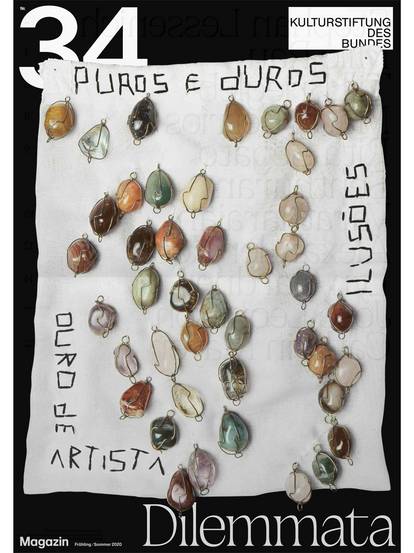
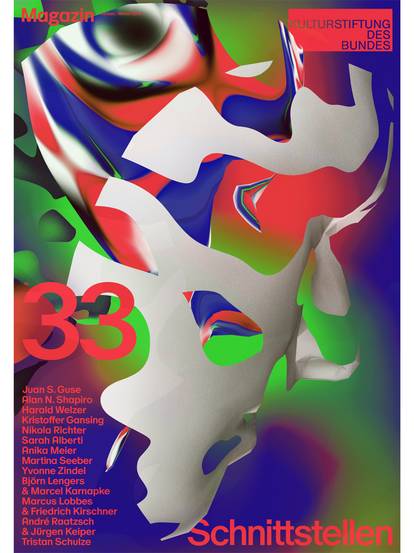
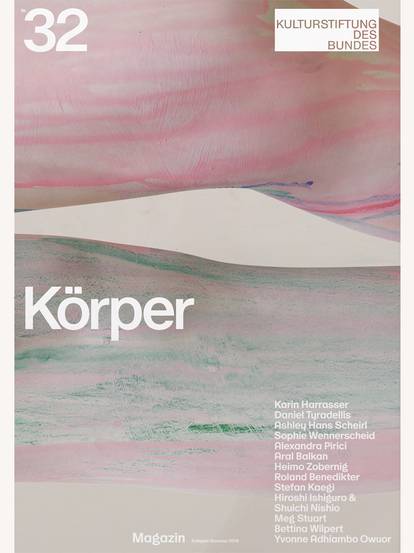
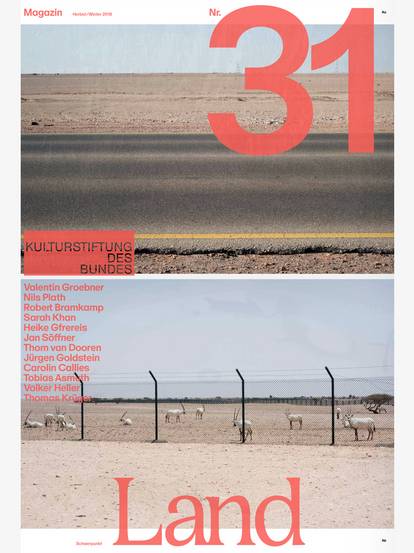
![[Translate to English:] Magazine 30](/fileadmin/_processed_/c/b/csm_magazin30_vorschau_9005f773d3.jpg)
